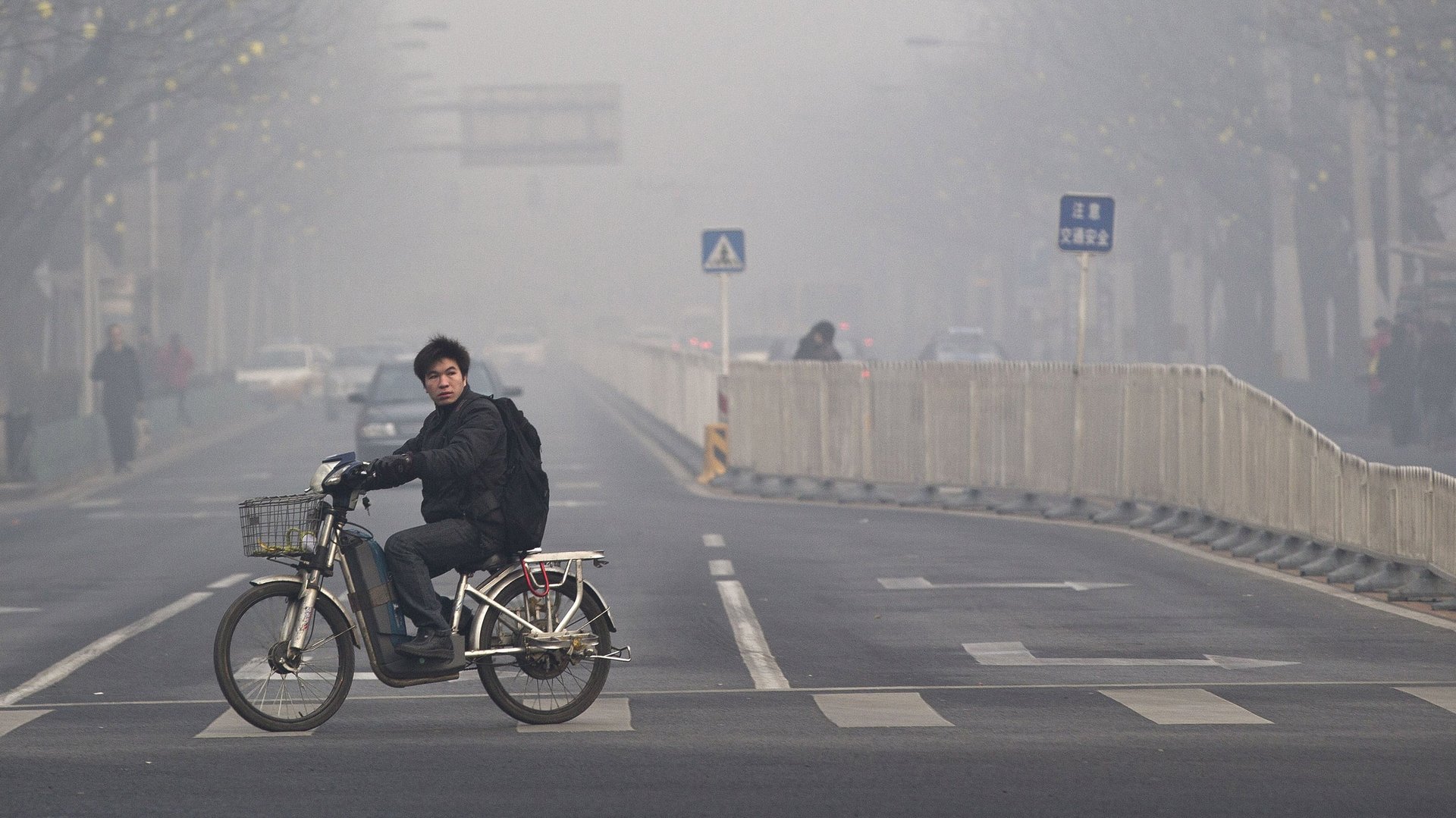What keeps China’s leadership up at night is that their people won’t tolerate new polluting plants
Realpolitik usually suggests unsentimental pragmatism in one’s foreign policy, but it’s also a good word to describe a sharp turn in Chinese domestic policy during its leadership transition this week. After three decades of headlong construction of polluting coal, chemical, and metals plants, the Chinese Communist Party has decided to assess the risk of upsetting the masses before erecting major factories. The decision, announced Nov. 12, follows a string of public uprisings against new factories, forcing their cancellation.


Realpolitik usually suggests unsentimental pragmatism in one’s foreign policy, but it’s also a good word to describe a sharp turn in Chinese domestic policy during its leadership transition this week. After three decades of headlong construction of polluting coal, chemical, and metals plants, the Chinese Communist Party has decided to assess the risk of upsetting the masses before erecting major factories. The decision, announced Nov. 12, follows a string of public uprisings against new factories, forcing their cancellation.
This is realpolitik because the decision doesn’t appear to be motivated by the health of the Chinese people. Instead, as the name of the reviews suggests—“social risk assessment”—China’s rulers are looking for early signs of possible upheaval and hence challenges to their authority.
We have discussed the potential weakness of linear forecasts of Chinese industrial expansion far into the future. Big Chinese cities are so polluted already that it has seemed nonsensical that you could double or triple the pollution and avoid a massive public reaction. The Nov. 12 Chinese announcement bears out that logic.
This does not mean that China will abruptly stop building coal-fired power plants—the lack of electricity could be even more socially disruptive. It merely suggests that China is looking for an offramp from its hyper-polluting past. The new practices will be phased in.
Bernstein’s Michael Parker has been onto the possibility of this shift. In August, he and colleague Alex Leung wrote a prescient note to clients (which we reported on at the time) after protests in the cities of Shifang and Qidong. It’s worth requoting a passage:
Since we all agree that the Chinese government is focused on social harmony, the practical implication is that the government will do whatever is required to ensure that people aren’t in the streets protesting not just food prices or lack of jobs, but also the environment. Few observers seem to classify the environment as the kind of issue that could excite the Chinese population into the street or the kind of issue that could result in changing political decision making and economic outcomes. And yet that is exactly what we are seeing.
I emailed Parker for his reaction to the Party shift. He replied, “I continue to find it fascinating that it isn’t corruption, inflation, the leadership transition or the economy that gets people into the streets in China in 2012. It’s the environment. If social harmony is the goal, the startling conclusion right now is that harmony begins–rather than ends—with environmental considerations.”
The Party is clearly worried about corruption, too. But Parker is right that that has ignited far less public fury than the worry over the health of their children.